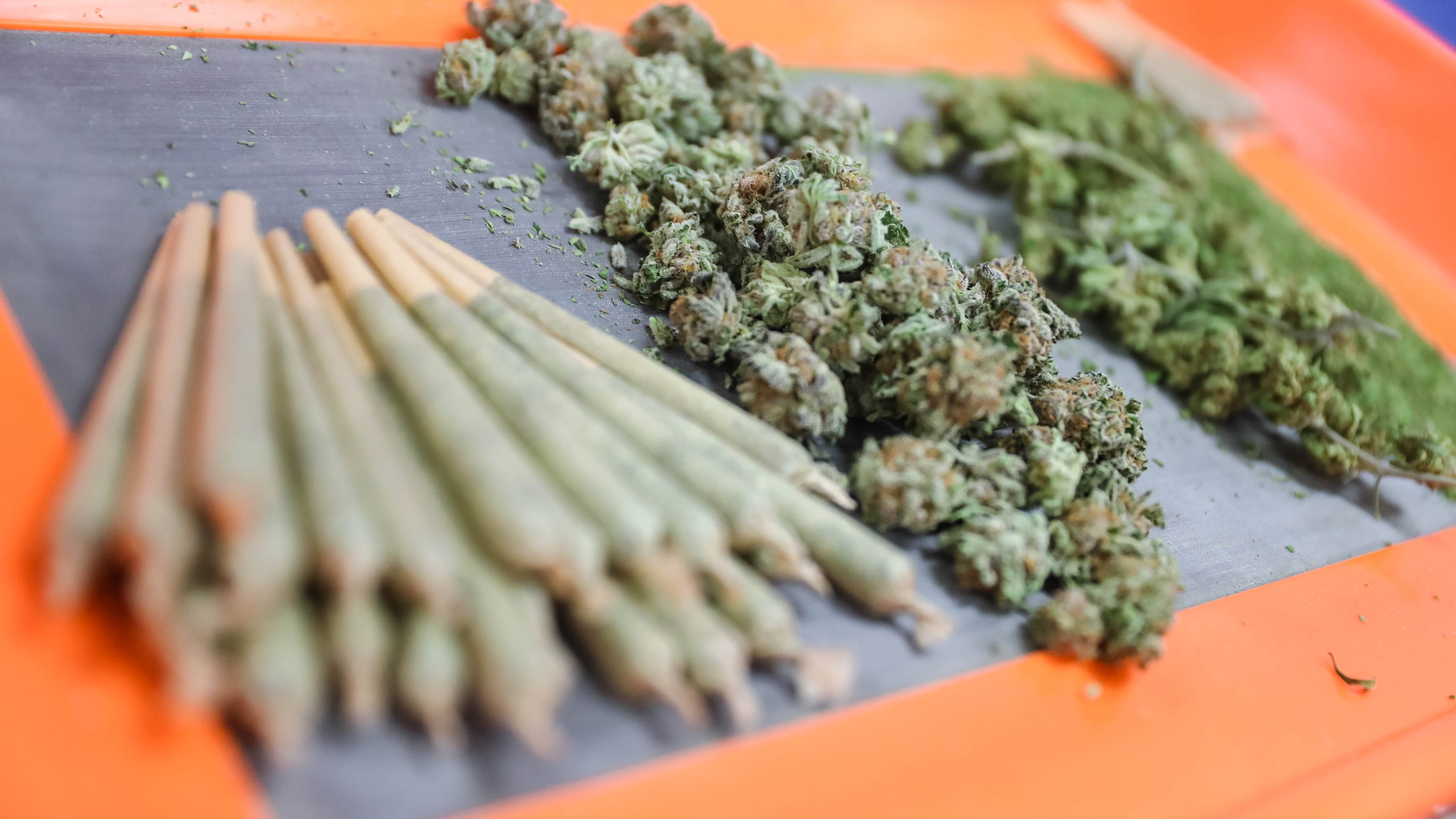
The Crossroads of Federal Marijuana Policy: A Standstill Amid Uncertainty
In the ever-evolving landscape of American drug policy, federal marijuana policy remains a contentious and stagnant arena. As of September 2025, the United States grapples with a patchwork of state laws clashing against outdated federal regulations. Congresswoman Dina Titus (D-NV), co-chair of the Congressional Cannabis Caucus, recently highlighted this impasse during a speech at the University of Nevada, Las Vegas. "We're at kind of a crossroads right now at the federal level," she stated, underscoring the hesitation surrounding potential reforms. This sentiment captures the broader frustration among advocates, lawmakers, and industry stakeholders who see progress halted by political indecision.
The federal classification of marijuana as a Schedule I substance under the Controlled Substances Act dates back to 1970, grouping it with drugs like heroin and LSD, deemed to have no medical value and high abuse potential. Despite this, public opinion has shifted dramatically. Polls indicate that over two-thirds of Americans support full legalization, with nearly 90% favoring medical use. As of 2025, 40 states, three territories, and the District of Columbia permit medical cannabis, while 24 states allow recreational use for adults. This state-level momentum contrasts sharply with federal inertia, creating a legal gray area that affects everything from banking to research.
Economically, the cannabis industry is booming. Projections for 2025 estimate the U.S. market reaching nearly $45 billion, contributing significantly to job creation and tax revenues. For instance, states like California and Colorado have generated billions in taxes since legalization, funding education, infrastructure, and public health initiatives. Yet, without federal alignment, businesses face hurdles like limited access to financial services, forcing many to operate in cash-only models that invite security risks and regulatory challenges. Titus emphasized this point, noting that the absence of banking accountability hampers transparency and regulation. The marijuana policy divide not only stifles growth but also perpetuates an illicit market, undermining the safety and quality controls of legal operations.
Trump's Deliberation: Weighing Rescheduling in a Divided Administration
President Donald Trump's stance on marijuana rescheduling has become a focal point of speculation. During his 2024 campaign, Trump endorsed shifting cannabis from Schedule I to Schedule III, acknowledging its medical potential and lower abuse risk compared to harder substances. He also backed Florida's legalization ballot initiative, recognizing its voter appeal. However, in office, his position has grown ambiguous. In August 2025, Trump indicated his administration was "looking at" reclassification and promised a decision within weeks. As September unfolds, that timeline appears extended, leaving the policy marijuana reform in limbo.
Rescheduling to Schedule III would mark a historic shift, allowing for expanded medical research and potential tax deductions for cannabis businesses, currently barred under IRS Code 280E. This could alleviate some economic pressures, as businesses deduct ordinary expenses like any other industry. Yet, opposition within Trump's circle is fierce. Nine lawmakers, including conservatives, urged him to reject the move, arguing it would exacerbate crime and public health issues. Former advisor Kellyanne Conway, however, emerges as a proponent, described by a GOP congressman as the "biggest champion" of rescheduling in Trump's inner circle.
Critics like former Trump Cabinet officials claim rescheduling would "worsen the crisis" of crime, citing unproven links between cannabis and societal ills. Data tells a different story: States with legal markets report stable or declining youth usage rates, with 52.5 million Americans—19% of the population—using cannabis at least once in the past year. Moreover, the 2018 Farm Bill, signed by Trump, legalized hemp, sparking a $28 billion industry but also debates over intoxicating derivatives. This precedent suggests Trump could pivot, but his administration's anti-cannabis holdouts complicate the path forward.
Congressional Voices: Dina Titus on the Federal Stalemate
Congresswoman Dina Titus's recent remarks cut to the heart of the frustration. Speaking to UNLV students, she described federal marijuana policy as "at a standstill," with uncertainty clouding Trump's intentions. "People don’t know what to expect," she said, pointing to Trump's campaign promises on descheduling that have yet to materialize. As a Nevada representative, Titus draws from her state's experience, where recreational legalization since 2017 has boosted tourism and revenue without the predicted societal collapse.
Titus also addressed emerging psychedelics reform, warning it might overshadow cannabis efforts. "That may be well and good," she noted, but psychedelics lack the rigorous study cannabis has undergone. Her advocacy extends to research, praising the shift on campuses where cannabis studies were once taboo due to federal funding fears. Today, institutions like UNLV explore tax policies, usage trends, and illicit market dynamics, providing data-driven insights for policymakers.
Bipartisan efforts persist, albeit slowly. Legislation like the MORE Act, reintroduced by 40 House Democrats in August 2025, aims to deschedule cannabis entirely, expunge records, and address prohibition's disproportionate impacts on communities of color. Titus observed that while Democrats lead, Republicans contribute, signaling potential for compromise. However, with Congress divided, major bills like SAFER Banking remain gridlocked.

Economic and Social Impacts: Numbers Behind the Green Rush
The facts and figures paint a compelling picture of marijuana's role in modern America. The industry has added approximately $115.2 billion to the economy through jobs, taxes, and ancillary services. In 2025, more than one in three women over 21 consume cannabis, reflecting broadening demographics. Addiction rates, often exaggerated, affect about 9% of users, comparable to alcohol.
Tax structures vary: States impose excise taxes from 6% in Maine to 37% in Washington, generating funds for public goods. New York anticipates $42.3 million in fiscal 2024 revenues, rising steadily. Socially, legalization correlates with reduced opioid prescriptions and traffic fatalities in some studies, challenging prohibitionist narratives.
Yet, federal policy marijuana lags, barring interstate commerce and stifling innovation. Twelve states eye legalization in 2025, potentially tipping the scale further. As Titus put it, "The federal government remains behind" the states.
Looking Ahead: Breaking the Standstill in Marijuana Reform
The future hinges on Trump's decision, which could catalyze change or reinforce the status quo. If rescheduled, research barriers lift, enabling FDA approvals for cannabis-based medicines. Industry leaders doubt swift reform, with surveys showing skepticism amid political divides. Advocates push for comprehensive legalization to rectify past injustices, where millions faced arrests for possession.
In this standstill, voices like Titus's remind us of the human element—patients needing access, entrepreneurs seeking equity, and communities deserving justice. As America navigates this crossroads, the interplay of marijuana policy and policy marijuana reform will define progress in the years ahead.
Discover the future of cannabis with D Squared Worldwide, your premier partner in wholesale hemp-derived products. As federal marijuana policy stands at a crossroads—with Congresswoman Dina Titus highlighting the standstill and President Trump weighing rescheduling to Schedule III—now is the time to position your business for growth. Our premium lineup includes CBD edibles, Delta 9 beverages, THCa-infused treats, and white-label options, all crafted for purity and potency. Backed by booming market projections of $45 billion in 2025, our products ensure compliance and quality amid evolving regulations. Elevate your inventory today—schedule a call with our team to explore wholesale opportunities and unlock exclusive deals!
Reference:
1. Adhikari, N., Hanula, J., & Ryan, S. (2025). How medical marijuana policies reproduce the status quo. NE. https://doi.org/10.59236/ne7263347
Geiger‐Oneto, S. and Sprague, R. (2020). Cannabis regulatory confusion and its impact on consumer adoption. American Business Law Journal, 57(4), 735-772. https://doi.org/10.1111/ablj.12171



